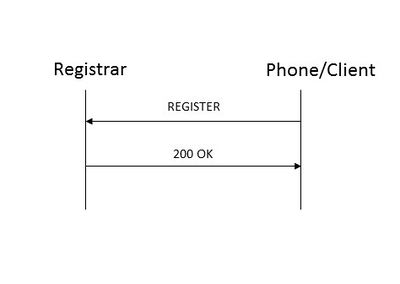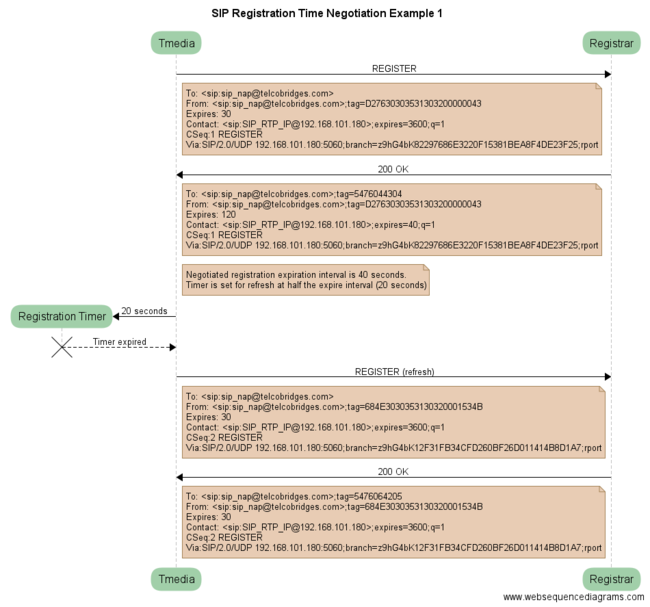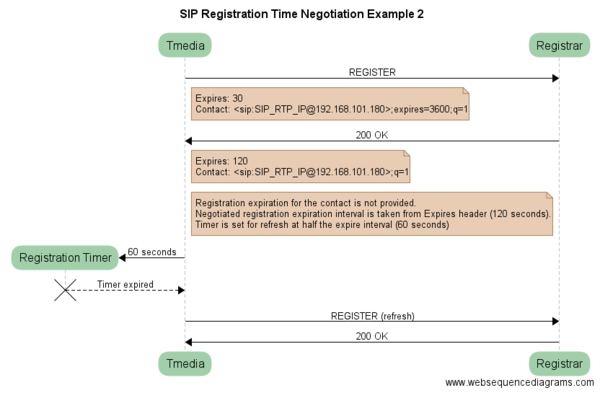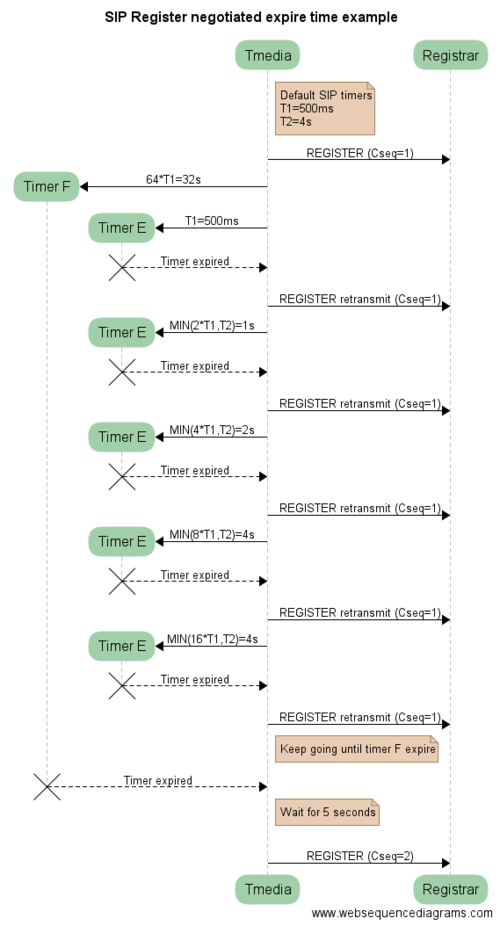SIP Registration
William Wong (Talk | contribs) |
William Wong (Talk | contribs) |
||
| Line 40: | Line 40: | ||
[[Image:SIP_Register_no_answers.png|500px]] | [[Image:SIP_Register_no_answers.png|500px]] | ||
| − | |||
| − | |||
| − | |||
| − | |||
| − | |||
| − | |||
| − | |||
| − | |||
| − | |||
Revision as of 03:08, 23 June 2016
Contents |
SIP Registrar
A SIP registrar’s role is to accept REGISTER requests with an Address Of Record (URI) and write the associated contact bindings to a location service. The location service is a logical entity and is simply a database that contains a list of AOR to contact address bindings. Very often a registrar functions as a location service. It is also very common for a registrar/location service to be co-located with the proxy server for the same domain. The example below shows a typical registration transaction.
Tmedia does not provide registrar functionality, therefore, a SIP client cannot register to a Tmedia. If a SIP clients communicate to another SIP clients (B2BUA) in point-to-point fashion and not through a SIP proxy, REGISTER is usually not required. In that case, the SIP clients are required to know the IP addresses or DNS of all the other clients they wish to communicate with.
Registration
The Tmedia supports to register a SIP NAP to a SIP proxy. Registration, can be used, for example, to authenticate the Tmedia Gateway IP address to a SIP provider proxy or SBC an allow the SIP traffic from the Tmedia to that SIP provider.
- Registration is when Tmedia sends a SIP REGISTER to a Registrar, and gets a response which could be accepted (200 OK) or refused (anything else) that may require further action
- If Authentication is required, the Registrar returns a 401 Unauthorized response with a WWW-Authenticate header
- The WWW-Authenticate header contains nonce to encrypt user’s communications password, user then sends a second REGISTER containing an Authorization header with the user's encrypted password
- Even if there is no call on the system, Tmedia will send SIP REGISTER
- If it is not registered already, the Tmedia will send SIP REGISTER at 5 seconds interval, otherwise it is at the half of the minimum registration negotiated with the remote proxy (endpoint)
- The SIP REGISTER is "valid" for 3600 seconds
- Tmedia will send a new REGISTER (to refresh a registration) after half of the minimum registration negotiated, general use will be at 1800 seconds (3600/2)
- Sending SIP REGISTER will happen when the option "Register to Proxy?" is selected for a specific SIP NAP
- If you apply a new configuration and the option "Register to Proxy?" is present it will start sending SIP REGISTER
Register with negotiation (contact expire)
Register with negotiation (contact expire not provided, default Expires header)
Register Authentication
Register with no answer from registrar
Polling
- In Tmedia, option "Poll Remote Proxy?" is enabled by default
- Tmedia SIP polling is using SIP OPTIONS method to "poke" a SIP Network Access Point (NAP) to see if it's alive or not, that is, NAP availability
- Upon a response from the SIP NAP, Tmedia will determine whether to mark the NAP as up
- If the option "Map any response to available status" is unchecked, only a 200 OK to a SIP OPTIONS will bring the NAP up
- The first time a SIP NAP is added in configuration and configuration activated, Tmedia polls at 5 seconds, after that and general use is polling at 60 seconds
Network Access Point (NAP) Availability
If "Poll Remote Proxy?" and "Register to Proxy?" are both checked, only the SIP OPTIONS answers will affect the NAP availability.
Configuration
- Allocating a SIP NAP Configuration v2.9
- Allocating a SIP NAP Configuration v2.8
- Allocating a SIP NAP Configuration v2.7
- Allocating a SIP NAP Configuration v2.6
- Allocating a SIP NAP Configuration v2.5




